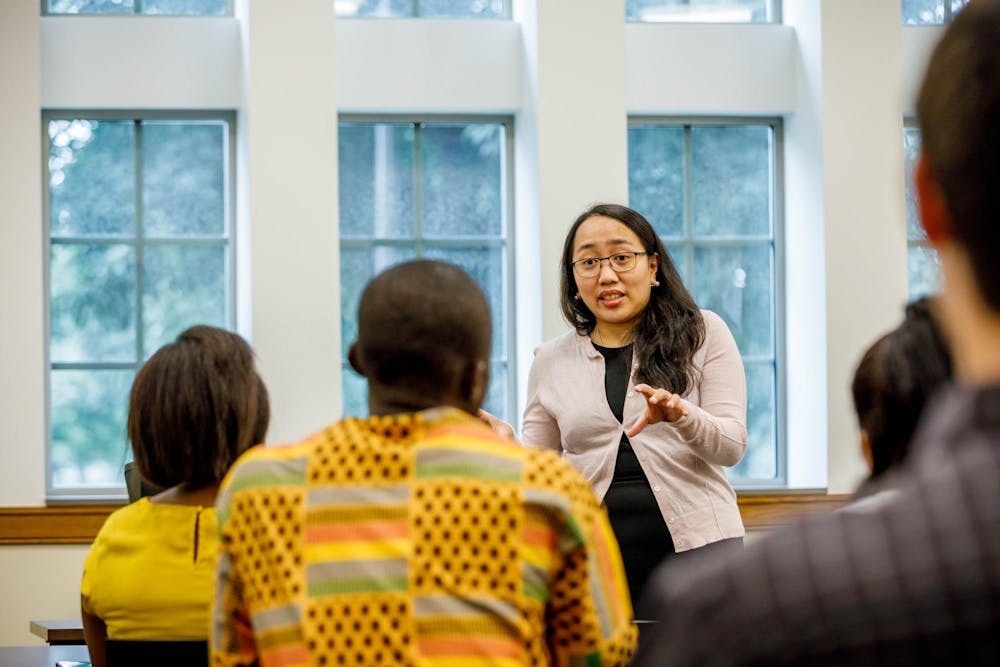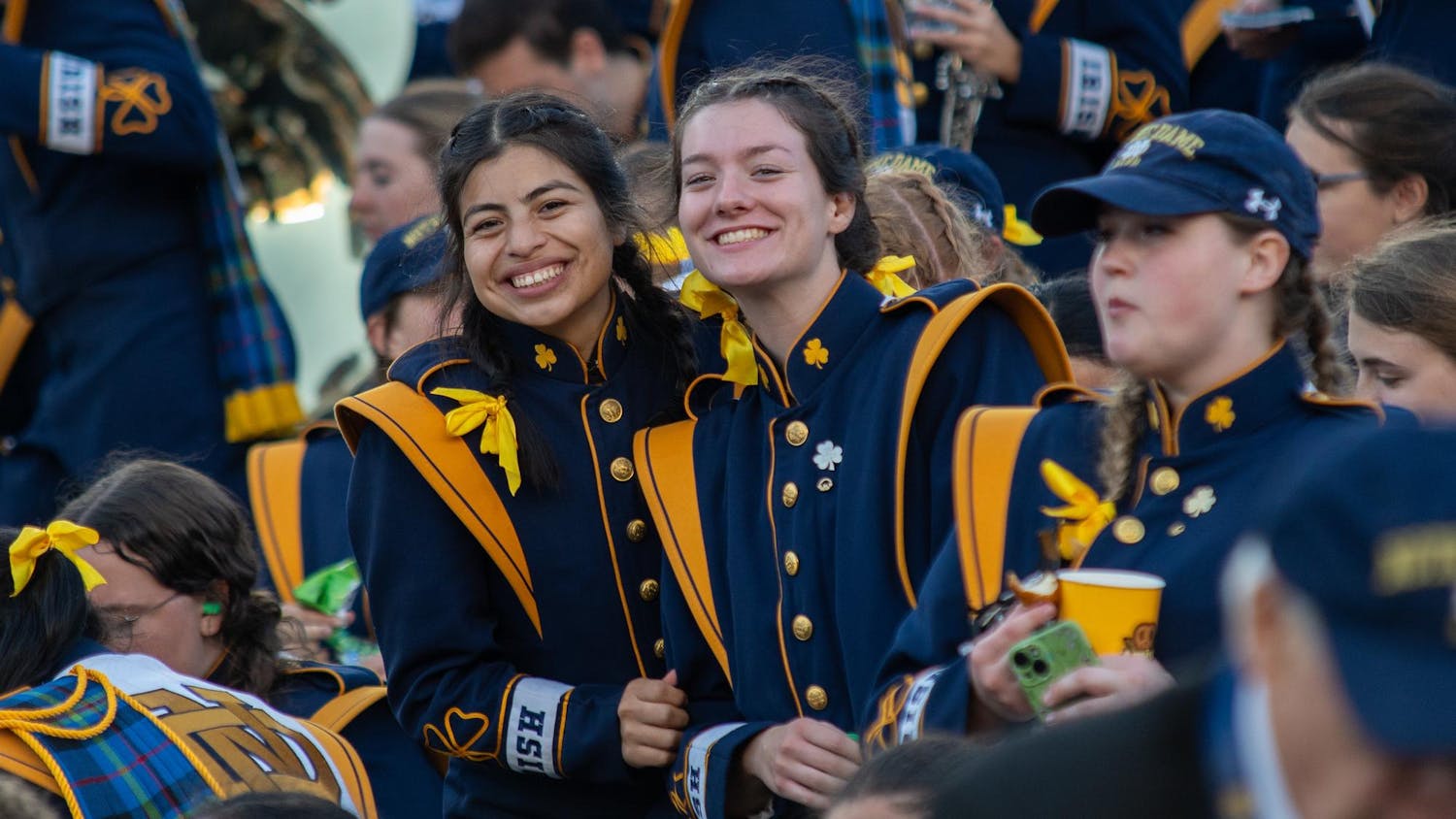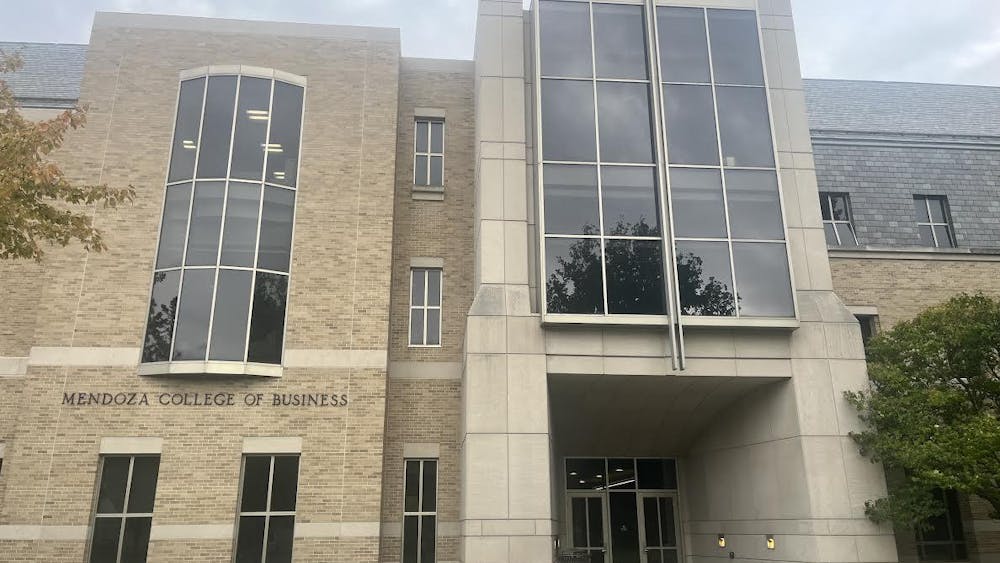The very month that Kabul fell to the Taliban in August 2021, human rights lawyer Roqia Samim arrived in South Bend for the beginning of her time at Notre Dame. Samim had worked with the United Nations in her homeland of Afghanistan, utilizing the law she studied as an undergraduate at Herat University.
Samim, who completed her master of laws (LLM) at Notre Dame in May 2022, is now working with the law school’s new global human rights clinic. The clinic, which launched this semester, seeks to serve both as an international human rights “pro bono firm” while teaching students in the law school and beyond about human rights work.
“The fundamental goal of this clinic is pedagogical. It is really about learning and formation for our students, but what they’re really concretely learning — and this is where this clinic is different from a lot of other law school human rights clinics — is that they’re learning what it takes to really represent a client, especially a global client,” Diane Desierto, the clinic’s director said.
Desierto, an international human rights lawyer, came to Notre Dame to establish a human rights faculty, having worked across the globe. Announced last semester, the clinic will take on projects including working with 39 small island states on climate change and human rights issues, Afghan women under Taliban restrictions, religious orders of priests persecuted by Russia, rural farmers in Africa and other efforts.
“When we talk about Catholic Social Teaching, we often refer to the preferential option of the poor. That poverty can mean many things as a lived reality … So we’re looking at vulnerabilities and depravations as sort of our measure for why the clinic will take on a case,” Desierto said.
The clinic will argue cases at institutions such as the International Court of Justice, Inter-American Court of Human Rights, International Criminal Court and the U.N. Human Rights Treaty Bodies.
For Samim, an Afghan woman who is a refugee from Taliban rule, the issue of human rights is personal.
“When you grow up in a country that has been dealing with war for five decades, human rights would definitely be impacted negatively,” she said. “I grew up seeing the violation of human rights around me, especially women’s rights. So then I realized that there is something that should be done in this [situation].”
Samim’s research on various projects contributes to the global efforts of the clinic.
“Seeing women deprived of their rights, seeing human rights violations, seeing civilian casualties during the war, it motivated me to work in this field, although it’s never easy to work for human rights, especially when you’re working with the victims of human rights violations,” she said. “I wanted to work in that field because I thought that there’s a need to work in this field in my country. And now that I am here, I think that human rights are not specific to any country. So it’s global, it’s international and all human beings around the world must have access to their basic rights.”
Desierto said the clinic was conceived after G. Marcus Cole, dean of the law school, published his article “I Am George Floyd. Except, I can breathe. And do something” in the summer of 2020.
Among Desierto’s extensive work, she serves as the lawyer for Nobel Peace Prize winning journalist Marissa Ressa, who has been suppressed by the Philippines’ government.
“There’s a pervasiveness of authoritarian regimes in the world — quite unprecedented, but authoritarian regimes who also know how to co-opt the language of human rights for their purposes,” Desierto said.
Her work at the clinic is an extension of that work.
“To an extent, the clinic is being launched with a view to who we are as Notre Dame, literally taking serious being a force for good,” she said. “There was also a need to help our students be aware of the kind of impact that they could concretely make on the life of somebody.”










